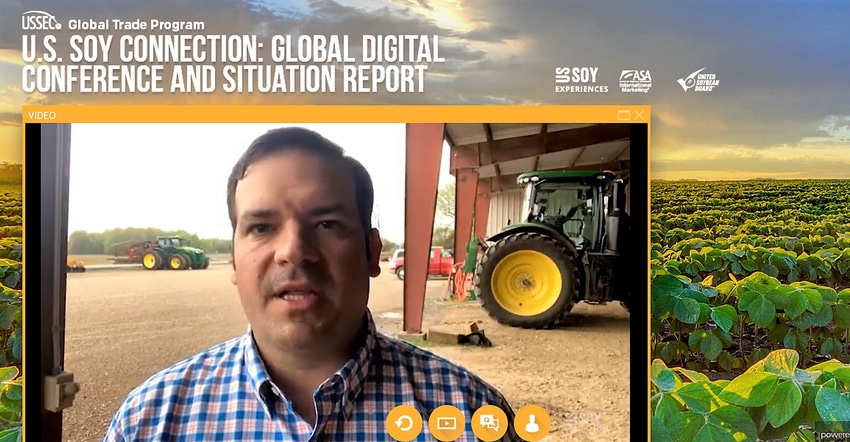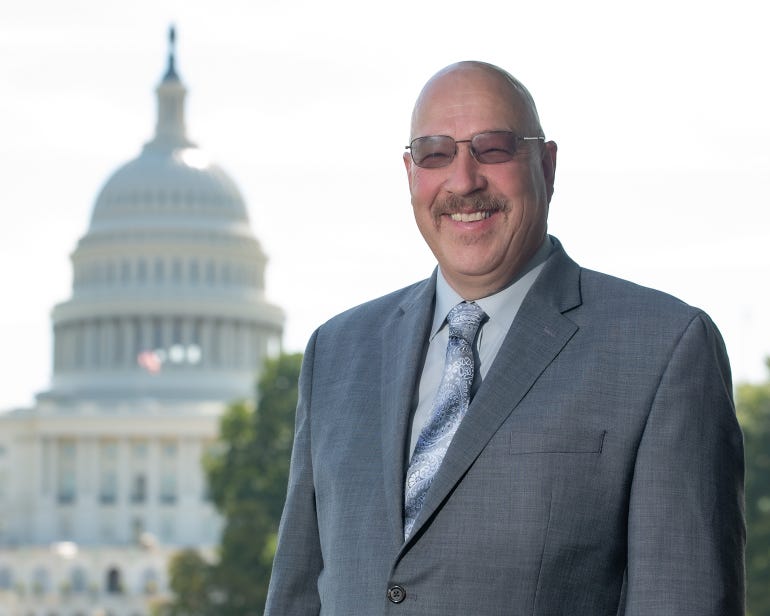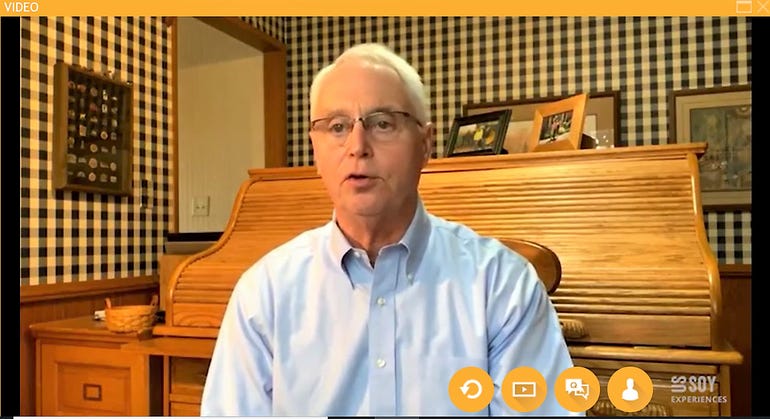
America’s soybean growers want consumers to know they will deliver.
“We have not slowed down,” Arkansas farmer Derek Haigwood says. “We want all the people out there depending on us to know that we’re not stopping. We’ve only changed the way that we’re doing business.”
Haigwood was part of a farmer panel during the U.S. Soy Connection: Global Digital Conference and Situation Report, put on by the U.S. Soybean Export Council in mid-April. His family farm, which includes six relatives, totals 12,000 acres in Arkansas. He says fears of the coronavirus pandemic creating a food supply shortage are reverberating through urban and rural communities.
Related: Complete coronavirus coverage
“I want people listening today to know that the U.S. farmer will put in a crop,” he says. “The older individuals on our farm, we have some 55 and up, my father is 65, are perfectly healthy right now and capable to work, ready to work.”
Still, the family is practicing social distancing whether it is having one person assigned to a tractor or implementing additional cleaning practices to remain safe during this planting season.
Haigwood and his fellow soybean farmers serving on the U.S. Soybean Export Council reminded consumers that while farmers are experiencing tough times fighting low prices, trade wars, the weather and now COVID-19, they remain steadfast and confident in their resolve to produce the safest, most reliable food supply in the world. Still, there are disruptions in the farm sector.

VIRUS INCONVIENENCE: Minnesota farmer Joel Schreurs told consumers that like them, going to the store — or in his case the equipment dealership — is different, as many also are practicing social distancing during the COVID-19 outbreak.

Adapting to change
For Joel Schreurs, the coronavirus affects his trips to the local equipment dealer.
“It's hard to get some of the goods and services so far,” the Tyler, Minn., soybean farmer says. “As far as going to the dealership, they don’t want to let you walk in the front door anymore. You have to order or preorder (parts), or just go to the front door and give them a list of what you want and then they bring it out to your truck.”
But Schreurs says they make the adjustments and keep working, and should someone in his operation contract COVID-19, there is a plan to keep farm equipment rolling.
He notes that on many farms, one person is typically assigned to a specific job, such as running the planter. However, in today’s work environment many workers are being cross-trained. “If I were to get sick, my son-in-law could run the planter.”

SOCIAL CAUTION: Whether on the farm or in town, Iowa farmer Brian Kemp says he takes additional health and safety precautions. Exposure to COVID-19 that leads to quarantine would be devastating to the agriculture industry.

Additional safety measures
Doug Winter’s farm near Mill Shoals, Ill., is off the beaten path in the southeast region of the state. “We’re pretty much out in the country, pretty much a self-contained group,” the soybean farmer says. Still, it doesn’t keep him from adhering to health protocols surrounding the coronavirus.
“We are taking precautions,” he says. “Lord knows we’ve gone through a lot of hand sanitizer and sanitary wipes over the past few weeks.” He says people on the farm are taking “personal responsibility” to guard themselves and others against the virus. But it just isn’t on the farm.
Iowa farmer Brian Kemp says he and his wife, Cindy, miss socializing with friends. “I only go to town when it's absolutely necessary,” he explains. “And when we do, we don’t have face-to-face contact with others. We keep our distance.”
Kemp says the entire farming community is very cautious now. “It would be disastrous to us to get quarantined during planting season,” he adds.
COVID-19 is very stressful, especially going into the 2020 planting season, Schreurs says. “But we will get planted one way or another. It may not be by every person that wants to be out there, but our crop will get planted.”
Read more about:
Covid 19About the Author(s)
You May Also Like






